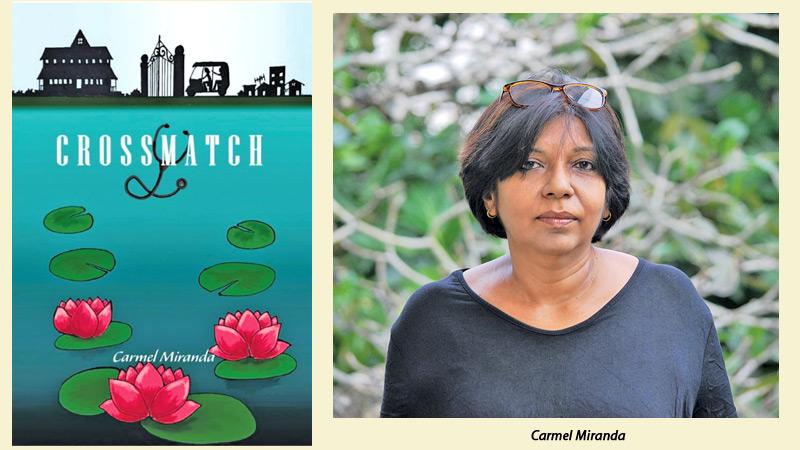

On July 2 this year, the panel of judges of this year’s Gratiaen Prize, announced at an online event, that this year’s winner was ‘Crossmatch’ by Carmel Miranda. A medical practitioner by profession, Carmel’s debut novel is a medical mystery, and has clinched what can be said to be the top literary prize in Sri Lanka for creative writing in English. In this Q and A feature, this year’s Gratiaen winner shares her sentiments about how it means to reach a commendable height in the sphere of Sri Lankan creative writing, and her sentiments about literary prizes and literature.
 Q: How does it feel to be a Gratiaen Prize winning author?
Q: How does it feel to be a Gratiaen Prize winning author?
A: It feels wonderful to be a Gratiaen prize-winning author, knowing that it is Sri Lanka’s most prestigious literary prize with its link to Michael Ondaatje and his bestselling novel The English Patient.
Q: What was your first internal response when you heard that you are this year’s Gratiaen winner?
A: I was stunned when I first heard the news. This was quickly followed by sheer joy.
Q: How important are prizes and accolades in the sphere of literature?
A: I can think of some outstanding novels that have been overlooked in literary competitions, and some award-winning ones that have been less than impressive. Ultimately, it is the book that has to sell itself, and not the label or sticker attached to it.
Having said that, prizes are invaluable in sparking literary interest among the public and providing publicity that will ensure that the books involved will be read by more people – ultimately this is the desire of almost every writer. In that way, the award becomes a means rather than an end. Some literary prizes which award large sums of money can actually help the author subsist and thereby focus their attention solely onto their writing.
Q: Who are the fiction writers you admire the most? What would be your top five favourite novels?
A: I admire a wide range of writers. It’s difficult to pick favourites. Where favourite books are concerned, the list is ever-changing. Some of the constants in the list are old favourites, such as Daphne du Maurier’s Rebecca, Harper Lee’s To Kill A Mockingbird and the Hitchhiker series from Douglas Adams.
I have read and re-read these many times. I recently read The Poisonwood Bible by Barbara Kingsolver and it became a favourite straightaway.
I just finished reading A Gentleman in Moscow by Amor Towles and a relatively new book called Djinn Patrol on the Purple Line, a debut novel by an Indian author called Deepa Anappara. Both those are going into my favourites list as well. These are just a few of my “top picks”.
Q : What is your take on novels written in English by Sri Lankan writers? What are the works in that category that you have found enjoyable?
A: When a reader reads a novel set in their own “place”, it becomes a more meaningful experience. For Sri Lankan readers of English novels, this is very rare, as there are too few writers of “Sri Lankan English fiction”. Stories by Sri Lankans either set in Sri Lanka or with Sri Lankan themes will surely resonate with Sri Lankan readers.
In addition, such novels will also speak to a wider global English-reading audience, including the diaspora who, in my experience, are hungry for any literature originating in their homeland. However, we must be careful about marketing such novels purely for that audience, for then we may fall into the trap of using the hackneyed tropes that appeal to the global reader.
The Sri Lankan authors I have enjoyed reading include Shehan Karunatilaka and Ashok Ferrey. The one that I admire the most right now is Yudhanjaya Wijeratne, who has made a name for himself internationally as a writer of science fiction.
Q: Going forward as a fiction writer, how do you see your journey ahead?
A: The fact that my literary efforts were recognised by the eminent readers that made up the Gratiaen prize panel of judges has been an incredible boost to my confidence as a new entrant into the Sri Lankan literary scene. I hope that the award will be not an end-point, but rather a beginning – both for my novel Crossmatch, and for me as a writer.
